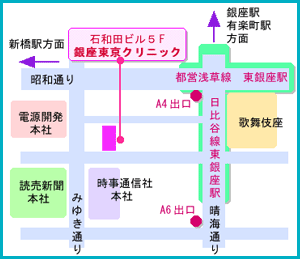L-カルニチンはがん性悪液質を緩和する
L-カルニチンはがん性悪液質を緩和する
L-カルニチン:がんにおける多作用性の抗消耗治療に適したサプリメント
Clin
Nutr. 2012 May 18. [Epub ahead of print]
【要旨】
研究の背景と目的:がんの増殖は脂肪組織と筋肉組織の減少による体重減少を引き起こす。
方法:高度の悪液質を引き起こすラットの主要のAH-130吉田腹水肝がん細胞を移植したラットにL-カルニチン(体重1kg当たり1g)を投与した。
結果:L-カルニチンの投与は、食餌摂取量と筋肉組織重量において著明な改善を示した。これらの効果により身体機能(身体活動の量、平均移動速度、総移動距離)は改善した。
L-カルニチンの投与は、プロテアソーム(タンパク質を分解する酵素複合体)の活性と、これに関連するユビキチンとC8プロテアソーム・サブユニットとMuRF-1の遺伝子の発現量を低下させた。さらに興味深いことに、L-カルニチン投与はcaspase-3(カスパーゼ-3)のmRNAの量を減らし、アポトーシスを制御する作用が示唆された。さらに、培養した筋肉細胞に50マイクロモルのL-カルニチンを添加すると蛋白質分解速度が著明に減少したので、蛋白分解を阻害する直接作用も示唆された。
結論:L-カルニチンの補充は、複数の作用機序によってがん性悪液質を改善する有効な治療法と結論できる。
原文:
Clin Nutr. 2012 May 18. [Epub ahead of print]
l-Carnitine: An adequate
supplement for a multi-targeted anti-wasting therapy in cancer.
Busquets S, Serpe R, Toledo M, Betancourt A, Marmonti E, Orpí M, Pin F, Capdevila E, Madeddu C, López-Soriano FJ, Mantovani G, Macciò A, Argilés JM.
Source
Cancer Research Group,
Departament de Bioquímica i Biologia Molecular, Facultat de Biologia,
Universitat de Barcelona, Barcelona, Spain; Institut de Biomedicina de la
Universitat de Barcelona, Barcelona, Spain.
Abstract
BACKGROUND & AIMS:
Tumour growth is associated with
weight loss resulting from both adipose and muscle wasting.
METHODS:
Administration of l-carnitine
(1 g/kg body weight) to rats bearing the AH-130 Yoshida ascites hepatoma,
a highly cachectic rat tumour.
RESULTS:
The treatment results in a
significant improvement of food intake and in muscle weight (gastrocnemius, EDL
and soleus). These beneficial effects are directly related to improved physical
performance (total physical activity, mean movement velocity and total
travelled distance). Administration of l-carnitine decreases proteasome
activity and the expression of genes related with this activity, such as
ubiquitin, C8 proteasome subunit and MuRF-1. Interestingly, l-carnitine
treatment also decreases caspase-3 mRNA content therefore suggesting a
modulation of apoptosis. Moreover, addition of 50 μM of l-carnitine to
isolated EDL muscles results in a significant decrease in the proteolytic rate
suggesting a direct effect.
CONCLUSIONS:
It can be concluded that
l-carnitine supplementation may be a good approach for a multi-targeted therapy
for the treatment of cancer-related cachexia.
L-カルニチンはカルニチン・パルミトイル基転移酵素(carnitine palmityl transferase)の発現と活性を制御することによってマウスのがん性悪液質を緩和する。Cancer Biol Ther. 2011 Jul 15;12(2):125-30.
【要旨】
がん性悪液質は脂肪組織と筋肉組織の減少を伴う進行性の体重減少によって特徴づけられる。主に肝臓におけるカルニチン・パルミトイル基転移酵素IとIIの活性の低下による脂肪酸酸化の障害が、がん性悪液質の発生に関与する重要な要因である。
最近の研究によってがん性悪液質の治療にL-カルニチンの投与の有効性が示されているが、その作用機序は不明である。
今回の研究では、がん性悪液質を起こしたマウスの肝臓におけるカルニチン・パルミトイル基転移酵素IとIIの活性と発現に対するL-カルニチンの作用を検討することを目的とした。
マウスに大腸がん細胞のcolon-26腺がん細胞を移植すると、食餌摂取量の低下と腓腹筋の筋肉量の減少と副睾丸の脂肪量の減少によって特徴づけられるがん性悪液質が発生した。さらに、がん性悪液質マウスでは、肝臓のカルニチン・パルミトイル基転移酵素IとIIのmRNA量と活性と血清中のフリーのカルニチンとアセチル・カルニチンの量は顕著に低下し、炎症性サイトカインの腫瘍壊死因子アルファ(TNF-α)とインターロイキン-6(IL-6)の血清濃度は上昇した。
がん性悪液質を呈したマウスに1日に18mg/kgのL-カルニチンを投与すると、食餌摂取量と腓腹筋の筋肉量と副睾丸の脂肪組織の量が増加し、血中のグルコースとアルブミン量が増加し、総コレステロール量は減少した。しかし、がん組織の増殖には影響しなかった。
がん性悪液質のマウスにL-カルニチンと投与すると、肝臓におけるカルニチン・パルミトイル基転移酵素IとIIのmRNA量と活性が上昇し、血清TNF-αとIL-6の量が減少した。これらの結果から、L-カルニチンは、血清TNF-αとIL-6量と、肝臓におけるカルニチン・パルミトイル基転移酵素IとIIの発現と活性に作用することによって、がん性悪液質を緩和することが示された。
原文
Cancer Biol Ther. 2011 Jul 15;12(2):125-30.
L-carnitine ameliorates cancer
cachexia in mice by regulating the expression and activity of carnitine
palmityl transferase.
Liu S, Wu HJ, Zhang ZQ, Chen Q, Liu B, Wu JP, Zhu L.
Source
Department of Gastroenterology,
Zhabei District Central Hospital, Shanghai, China. liusu2222@163.com
Abstract
Cancer cachexia is characterized by progressive weight loss with the depletion of adipose tissue and skeletal muscle. Impaired fatty acid oxidation mainly resulting from the decrease of carnitine palmitoyltransferase I and II activities in the liver is an important factor that contributes to cancer cachexia . Although recent studies suggest a potential application of L-carnitine in treatment of cancer cachexia, the underlying mechanisms are unknown. In the present study, we aim to assess the effects of L-carnitine on the activity and expression of CPT I and II in the liver of cachectic cancer mice. Our results show that the inoculation of colon-26 adenocarcinoma cells into mice led to cancer cachexia characterized by notable decreases in food intake, gastrocnemius muscle and epididymus fat weight. In addition, the mRNA level and activity of liver carnitine palmitoyltransferase (CPT) I and II, and serum levels of free carnitine and acetylcarnitine were markedly decreased in cachectic mice, accompanied by marked increases in serum levels of tumor necrosis factor-alpha (TNF-α) and interleukin-6 (IL-6). A continuous oral treatment with L-carnitine at 18 mg/kg per day increased dietary uptake, gastrocnemius muscle weight and epididymus fat weight, increased blood glucose and serum albumin levels, and decreased total cholesterol level in cancer cachectic mice, but did not affect tumor growth. These effects of L-carnitine on cancer cachexia mice were accompanied by the upregulation of mRNA level of CPT I and II and increased enzyme activity of CPT I in the liver, as well as the downregulation of serum TNF-α and IL-6 levels. Moreover, free carnitine levels were negatively correlated with serum TNF-α or IL-6 level. These results indicate that L-carnitine ameliorates cancer cachexia by regulating serum TNF-α and IL-6 levels and modulating the expression and activity of CPT in the liver.
< 前の記事「 L-カルニチンは進行膵臓がんの悪液質による体重減少を防ぐ 」 | ホーム | 次の記事「 抗酸化物質+L-カルニチン+セレコキシブはがん性悪液質を改善 ... 」 >






